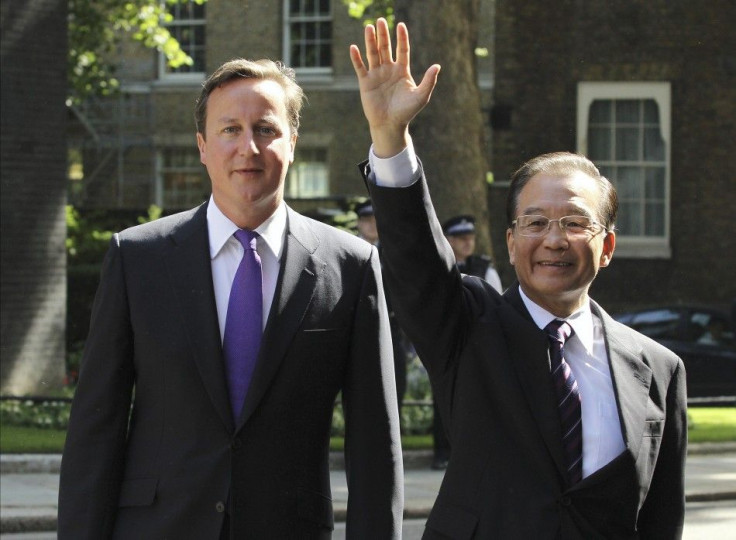Cameron Vows To Push For Human Rights In China, While Expanding Trade

British Prime Minister David Cameron asserted that he will push Chinese premier Wen Jiabao on the contentious issue of human rights in China, as the two nations have signed a huge trade deal valued at £1.4-billion.
Cameron said he will raise such subjects as political freedom and the criminal justice system in China, while concurrently seeking to establish closer economic ties.
There is no trade-off in our relationship,” the Prime Minister told reporters.
“It is not about either discussing trade or human rights. Britain and China have such a strong and developed relationship. We have a dialogue that covers all these issues, and nothing is off limits in the discussions that we have. We are different countries, we have different histories, different stages of development. We should show each other respect. But we're very clear that political and economic development should go hand in hand, that one supports the other.
Wen, on a three-day official visit to Britain, told reporters after holdings talks with Cameron: On human rights, China and the UK should respect each other, respect the facts, treat each other as equals, engage in more cooperation than finger-pointing and resolve our differences through dialogue.
Wen also said: China is not only pursuing economic development but also political structural reform and improvement in democracy and the rule of law. I am confident that tomorrow's China will enjoy not only economic prosperity but improved democracy and legal systems. It will be a country based on the rule of law.
Despite China’s shaky record on human rights and personal freedom, it is a global economic superpower and cannot be ignored in terms of business and trade
Trade with China is a huge opportunity for the UK but we have a lot to offer China as well, Cameron said.
Building on this trade and investment will mean jobs, growth and prosperity for all of us.
Cameron indicated that the UK and China are on target on expansion of their bilateral trade to $100-billion by 2015.
The Prime Minister also said that Britain is the natural home for Chinese investment into Europe, which could include China’s participation in infrastructure projects, such as the proposed high-speed rail line between London and the north of England.
Responding to a question from a Chinese reporter who said that Germany has more business with China than the UK does, a testy Cameron said: If you look at the figures, British exports to China grew by 40 percent last year and since November, when I visited Beijing, have gone up by 20 percent, so I don't accept that Britain isn't exporting more to China and isn't on target to meet the very challenging target of $100-billion dollars in bilateral trade by 2015. I think the performance is good, but I want it to be better.
Wen has faced small protests wherever he has gone in England. About forty activists gathered outside London's Mandarin Oriental Hyde Park Hotel chanting shame on China and holding banners which read Tibet will be free.
Pro-Wen demonstrators also showed up outside the Mandarin.
A British-based Chinese political analyst told BBC that repression in China is hardening, not easing.
Human rights is an issue that you should raise as a matter of principle but realistically we are not going to see much change in China, said Professor Steve Tsang, from the University of Nottingham, said.
They have not been delivering much in terms of human rights for a long time.
© Copyright IBTimes 2024. All rights reserved.





















